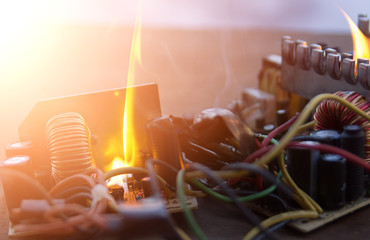
Faulty electrical appliances can pose a serious risk to consumers. After a product defect, it is only natural to wonder who is liable for the damages. It is important to understand consumer rights and the types of defects that can make manufacturers responsible for faulty electrical appliances. Manufacturers bear a significant responsibility for ensuring the safety of their electrical appliances and when defects occur they may be held liable for the damages under product liability laws. Contact a Rockland County product liability lawyer to discuss your legal options after experiencing a faulty appliance.
What is Product Liability?
Manufacturers have a legal obligation to ensure that the products they produce are safe for consumers to use. This is especially true when discussing electrical appliances as any failure on the part of the manufacturer could result in serious danger and issues for the user. Electric appliances have to meet rigorous safety standards before they can go to market, but defects can still occur. When this happens manufacturers can be deemed responsible under product liability laws.
- Breach of Warranty: Manufacturers can be held responsible for any breach of an express or implied warranty. Express warranties are ones explicitly written and included in your purchase, and an implied warranty is an automatic assumption that the product is fit for its intended purpose. If it can be proven that the manufacturer breached any contracts it can prove liability.
- Negligence: To make a negligence claim you must prove that the manufacturer failed to exercise reasonable care when designing, creating, or distributing the product.
- Strict Liability: This type of liability does not depend upon any negligence on the manufacturer’s part. Even if there was no carelessness or intent, they can still be held liable. As long as the product was defective and caused injury, the manufacturer can face a strict liability claim.
Can Consumers Sue Manufacturers for Faulty Electrical Appliances?
Yes, consumers can sue manufacturers for damages caused by faulty electrical appliances depending on the details of the situation. To bring a successful lawsuit against a company consumers generally must demonstrate three things.
- Injury or damage: It first must be proven that they suffered harm as a result of using the product, whether it be an injury or damage to their property or others.
- Defect: It must be established that there was a flaw or defect in the appliance’s design, manufacturing, distribution, or warning to consumers.
- Causation: Finally, the consumer must show that the product’s defect directly caused their injury or damage.
Consumers have the right to seek compensation for injuries and damages caused by product defects. It is important to hold manufacturers accountable and promote more extensive safety procedures in the workplace. Reach out to a skilled attorney today for representation and assistance in pursuing legal action for a faulty electrical appliance.

